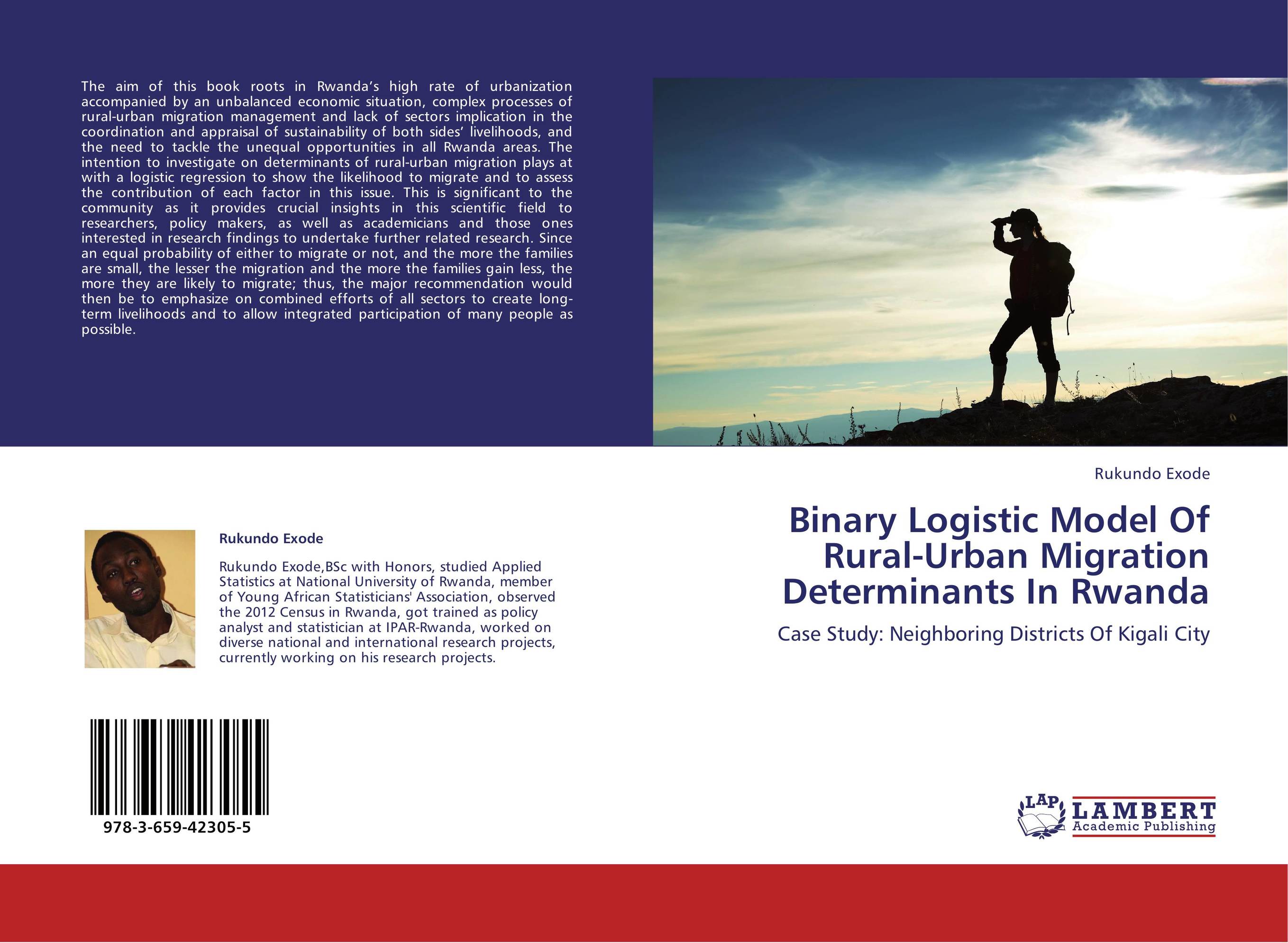| Поиск по каталогу |
|
(строгое соответствие)
|
- Профессиональная
- Научно-популярная
- Художественная
- Публицистика
- Детская
- Искусство
- Хобби, семья, дом
- Спорт
- Путеводители
- Блокноты, тетради, открытки
Binary Logistic Model Of Rural-Urban Migration Determinants In Rwanda. Case Study: Neighboring Districts Of Kigali City

В наличии
| Местонахождение: Алматы | Состояние экземпляра: новый |

Бумажная
версия
версия
Автор: Rukundo Exode
ISBN: 9783659423055
Год издания: 2013
Формат книги: 60×90/16 (145×215 мм)
Количество страниц: 68
Издательство: LAP LAMBERT Academic Publishing
Цена: 25266 тг
Положить в корзину
| Способы доставки в город Алматы * комплектация (срок до отгрузки) не более 2 рабочих дней |
| Самовывоз из города Алматы (пункты самовывоза партнёра CDEK) |
| Курьерская доставка CDEK из города Москва |
| Доставка Почтой России из города Москва |
Аннотация: The aim of this book roots in Rwanda’s high rate of urbanization accompanied by an unbalanced economic situation, complex processes of rural-urban migration management and lack of sectors implication in the coordination and appraisal of sustainability of both sides’ livelihoods, and the need to tackle the unequal opportunities in all Rwanda areas. The intention to investigate on determinants of rural-urban migration plays at with a logistic regression to show the likelihood to migrate and to assess the contribution of each factor in this issue. This is significant to the community as it provides crucial insights in this scientific field to researchers, policy makers, as well as academicians and those ones interested in research findings to undertake further related research. Since an equal probability of either to migrate or not, and the more the families are small, the lesser the migration and the more the families gain less, the more they are likely to migrate; thus, the major recommendation would then be to emphasize on combined efforts of all sectors to create long-term livelihoods and to allow integrated participation of many people as possible.
Ключевые слова: regression, Environment, Livelihoods, Migration, sectors, Probability, logistic, Urbanisation, policies



